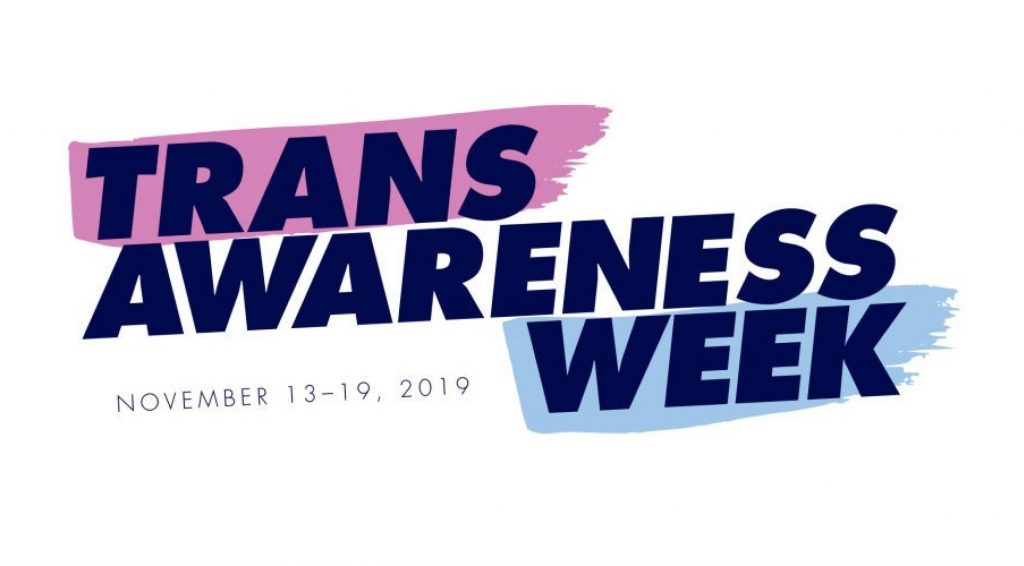Transgender Awareness Week: ‘Talk to us – and listen’
Sports journalist Emma Smith came out as trans in her professional life earlier this month. With increased negativity towards trans people prevalent in the UK media, she calls for healthier conversations…

Last Friday, I finally pressed ‘Tweet’ on a message containing the near-400 words which I had agonised over more than the hundreds of thousands I had written before in my career as a journalist.
In that message, I announced to the wider world of former colleagues, fellow sports fans and those most terrifying people, the general public, the news which I had told close family and friends some months prior, and which I have always known as being the truth for more than 20 years.
Basically, that I’m transgender.
The reaction I have had to this news has been, for the most part, as positive as I could have hoped.
Former colleagues have liked my tweet, while others have sent messages of congratulations and support, reaffirming my belief that the current British sports media, for all the criticism it receives, is made up mostly of kind, friendly and intelligent human beings, and I remain proud to call myself a journalist.
However, there is no question that the wider British media has to do more to provide balanced coverage when it comes to stories about trans people, to avoid unnecessary demonisation which has led to discussions becoming increasingly polarised and toxic.
On Wednesday, charity Mermaids launched their “If I Had A Voice” crowd funder campaign, which while focused on trans children, also featured research into how the media reports on trans people more generally.
The research, by Professor Paul Baker of Lancaster University’s English language and linguistics department, found the British press has hugely increased its coverage of stories about trans people in recent years, writing roughly three-and-a-half times as many articles in 2018 and 2019 compared to 2012.
In these articles, trans people are increasingly written about in negative ways. They are described as having a propensity to be offended or be involved in conflicts in 586 articles in 2018-19, compared to just eight times in 2012.
They are described in the context of being demanding or aggressive 334 times in 2018-19 (compared to five in 2012), and written about in the context of crime (either as criminals or victims of crime) 608 times in 2018-19, as opposed to three in 2012.

There were no references to the “transgender lobby” in 2012. In contrast, 2018-19 saw 151 mentions of this term, with over 90 per cent of such cases writing about it in a negative way, such as silencing debate, peddling politically-correct fallacies, being deranged, or aggressively militant.
The point of the campaign is that journalists should not write about trans people without speaking to trans people – and that in my view is key.
The prevailing view in some media is that trans people are weird; some kind of strange, otherly creatures trying to inveigle their way into spaces where they don’t belong, or gain some kind of nebulous advantages in life – or, worse, trying to draw in young people like some kind of cult or fad.
This is simply not true – talk to us, and you’ll find we are quite disappointingly normal, mostly.

Of course, when transitioning, in some ways a person won’t be the same as they were prior – they will have a different name, will look different, may eventually sound different.
But in so many more ways I, and any trans person, will still be the same they always have been – in my case, even now I’m called Emma, I’m still sports-obsessed, still inordinately interested in lower league football, and still be incredibly unfunny despite my best efforts.
Through talking and listening, any journalist in sports or otherwise can be a good ally and help the industry I love be more inclusive.
With thanks to Emma – follow her on Twitter at @emmasmithjourno.
Give trans and gender-diverse kids a chance to be heard – donate to Mermaids’ #IfIHadAVoice Crowdfunder
Recommended resources
‘How to be an ally to trans people’ (LGBT Foundation)
‘The truth about trans: A Q&A for people who are hungry for real info’ (Stonewall)


